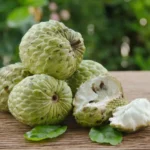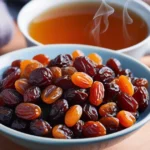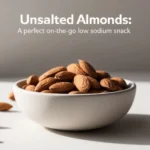1.Understanding Manuka Honey
Manuka honey is a unique natural product known to be good for you. This piece discusses where to get it, what it is made of, how it’s made, and what it can be used for.
2. What is Manuka Honey?
Manuka honey is another product of bees that extract pollen and nectar from the flowers of the Manuka tree, which is found mainly in New Zealand and Australia’s east coast. MGO and other bioactive compounds make it unique for its exceptional antibacterial properties.
i. What Makes It Different from Regular Honey
- People love manuka nectar because it has powerful antibacterial, antimicrobial, and anti-inflammatory qualities, primarily due to methylglyoxal (MGO).
- It differs from other honey because it has healing properties even when in contact with body enzymes, heat, or light.
- Its earthy, deep, steady flavor makes it a favorite natural medicine remedy and a premium ingredient in beauty and health products.
ii. Historically, in Traditional Medicine
- The Māori people of New Zealand have long used Manuka honey to treat cuts and infections.
- Today, it’s seen as a link between traditional and modern treatment and is known worldwide as a natural way to treat many illnesses.
3. How is Manuka Honey Produced
Manuka honey is a natural product with unique healing qualities and is very popular. The role of the Manuka flower, the extraction process, and other elements are some of the things that affect its quality and effectiveness. Here is a summary:
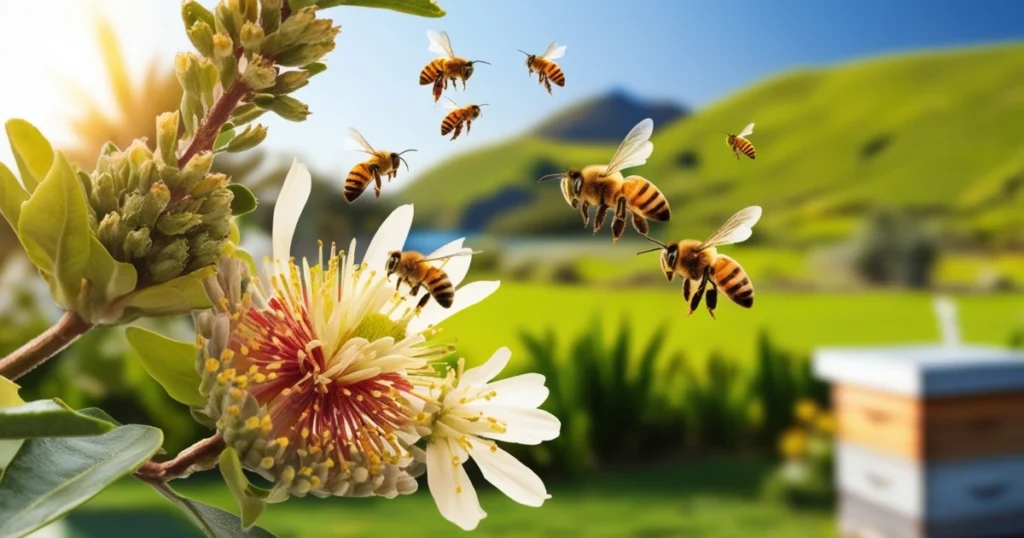
# The Role of the Manuka Flower
The Manuka flower is in bloom for approximately six weeks before the bees make the honey. The insects that collect this product are bees that take it from these flowers and then change it to honey through regurgitation and evaporation. In many respects, Manuka nectar varies by factors, including geology, the health of bees, and the flowers that those bees gather. Such a hand-made process is used in making something that many people consider a superfood.
i- Source of Unique Compounds:
- The Unique Manuka Factor (UMF) system determines the grades of Manuka honey by quantifying the amounts of MGO, dihydroxyacetone (DHA), and leptosperin. The higher the UMF rating, the greater the honey’s therapeutic potency. Its nectar contains dihydroxyacetone (DHA), a precursor to methylglyoxal (MGO), which gives Manuka honey antibacterial properties.
ii. Seasonal Availability:
- Every year, the flowers only bloom for a limited time, mostly from November to February. You need to buy honey during these months.
iii. Environmental Influence:
- The plant’s health, growing conditions, and the surrounding ecosystem affect the nectar quality, which in turn influences the honey’s characteristics.
# Process of honey extraction–
i- Collection:
- Honey is made in beehives, where enzymes take nectar from Manuka flowers and turn it into honey.
- The honey is stored in wax cells and capped when the moisture content reaches about 17–18%.
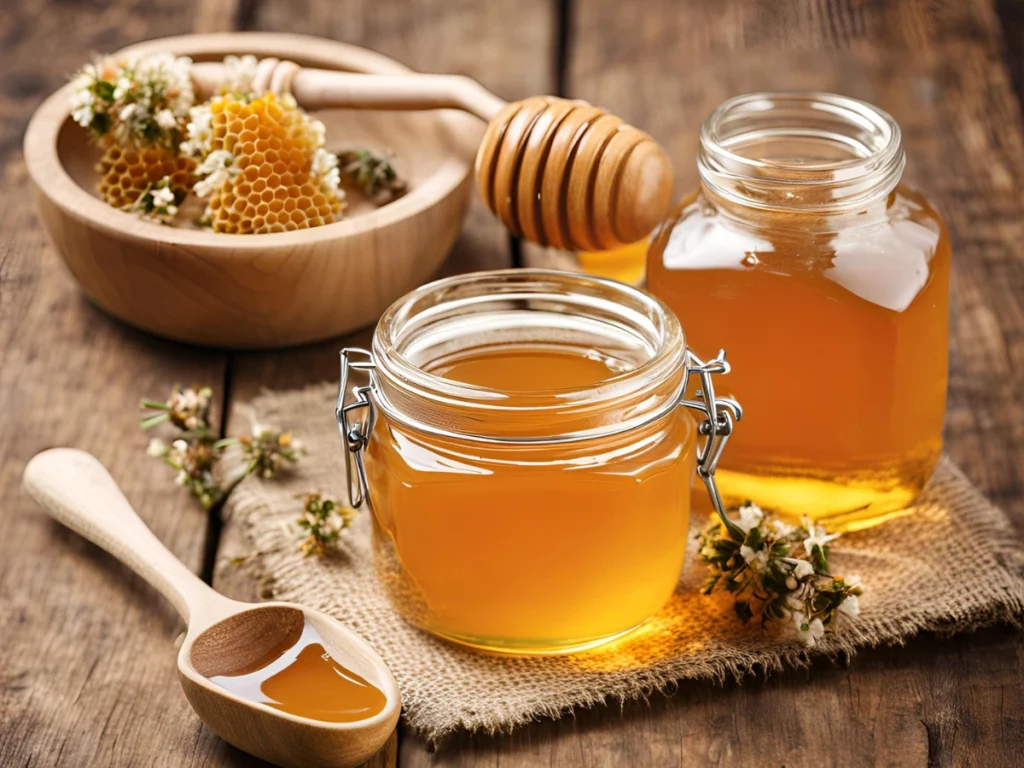
ii. Harvesting:
- Beekeepers carefully remove honeycombs to minimize disturbance to the bees.
- Workers take the combs to make the honey site, ensuring the Manuka honey remains clean.
iii. Extraction:
- After uncapping the honeycombs, the honey is extracted by pressing or centrifugal force.
- Impurities such as wax and pollen particles get squeezed out of the extracted honey.
iv- Packaging:
- The honey is minimally processed (e.g., gently heated to maintain flow) and packaged to preserve its natural qualities.
# Things that affect quality and strength
i- MGO Content:
- This nectar’s quality is mostly based on its amount of MGO, which is made from DHA. Higher amounts of MGO mean that the antibacterial effect is stronger.
ii. UMF Rating:
- The Unique Manuka Factor (UMF) grading system measures MGO levels, DHA, and other key markers. A higher UMF indicates higher quality.
iii. Harvest Conditions:
- Weather, soil type, and location are all at honey and manuka juice quality.
iv. Purity:
- If honey has juice from flowers other than Manuka, it can be less powerful. High-quality Manuka nectar is generally tested to ensure its purity.
v. Storage:
- Honey stored in optimal conditions (cool, dry, dark) retains its potency longer. Heat and light can degrade MGO.
vi. Beekeeping Practices:
- Using ethical and environmentally friendly methods makes the honey more pure and better and lowers the risk of polluting the environment.
By learning about these things, you’ll better understand what makes Manuka honey unique and how difficult it is to make it without harming the environment.
4. Unique Ingredients in Manuka honey
Bees pollinate the Leptospermum scoparium plant, which makes manuka nectar. The healing properties of manuka honey come from the special chemicals that make it up.
# Overview of Methylglyoxal (MGO)
- Methylglyoxal (MGO) is the key ingredient that makes Manuka honey unique.
- Leptospermum nectar is naturally transformed into dihydroxyacetone (DHA), which is present in high concentrations in the nectar of these flowers.
i. Concentration and Grading:
- The MGO content of manuka nectar is often used to measure its effectiveness against bacteria, with higher amounts showing stronger effects. One way to show this is through UMF (Unique Manuka Factor) or MGO scores.
ii. Antibacterial Properties:
- MGO interferes with how bacteria cells work, which means that manuka honey can kill a wide range of bacteria, even ones immune to antibiotics, like MRSA.
# Other Important Ingredients in Manuka honey
i- Hydrogen Peroxide
- Honey, including Manuka, contains hydrogen peroxide, which kills germs.
- Manuka honey works even after hydrogen peroxide breaks down because MGO is more stable and strong.
ii- Leptosperin
- Leptostigma is a chemical found only in Manuka honey.
- It helps prove that the honey is authentic and adds to its medicinal profile.
iii- Flavonoids and polyphenols.
- These vitamins help fight free radicals, lowering inflammation and speeding up wound healing.
iv. Proteins and enzymes from bees
- Enzymes like glucose oxidase slowly release hydrogen peroxide and other helpful chemicals.
5. Nutritional Value (Per 100 grams)
- Calories: ~300–325 kcal
- Carbohydrates: about eighty grams.
- mostly from natural sugars—glucose and fructose
- Proteins: 0.2–0.5 g
- Fats: ~0 gram.
- 0 grams of fibre
- Among the trace B vitamins are pantothenic acid, riboflavin, and niacin.
- Monitoring minerals like phosphorous, calcium, potassium, magnesium, iron, and zinc is essential.
6. Natural Energy Booster
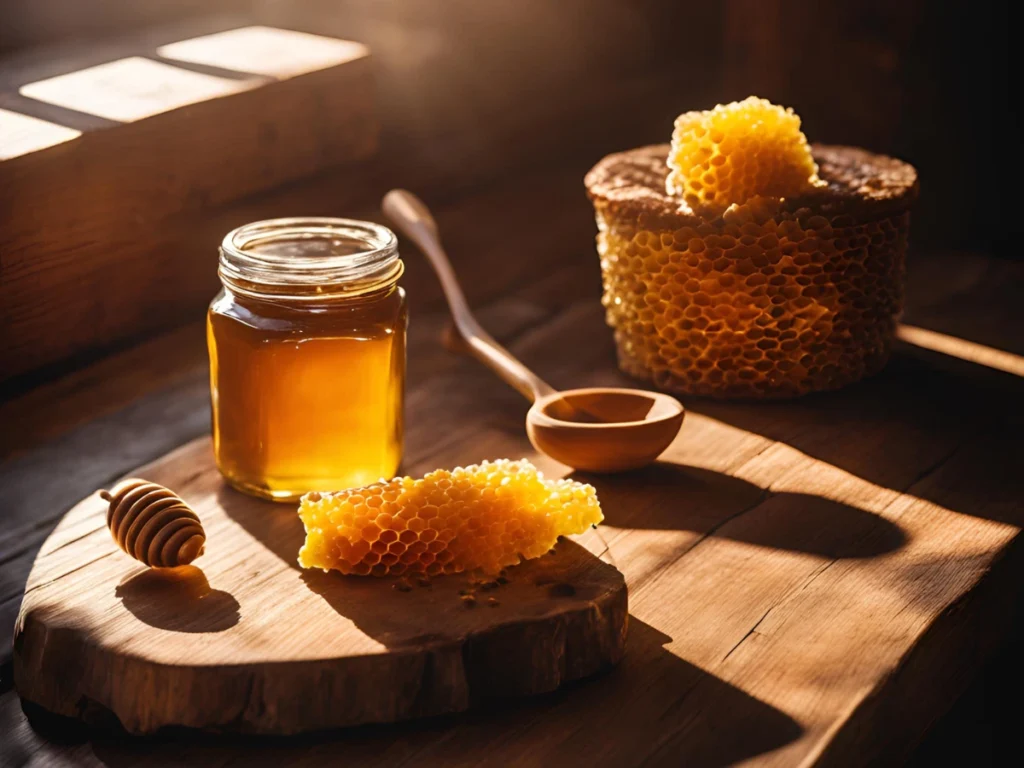
# The Role of Carbohydrates in Providing Energy
Manuka honey contains many carbohydrates, mostly natural sugars like glucose and fructose. These sugars are a great natural energy source because they give you a quick and long-lasting boost.
# Comparison with other natural sweeteners
Manuka nectar has more bioactive compounds, like methylglyoxal (MGO), than other sweeteners like maple syrup or agave. These are what give it its unique antimicrobial and health-promoting qualities.
# The best times to eat or drink to get the most energy
- In the morning: Add to breakfast or tea for a natural energy boost in the morning.
- Before the workout: Eat a teaspoon to get energy for exercise.
- afternoon slump:Use it for a natural pick-me-up in drinks or snacks during the afternoon slump.
7. Minerals and Vitamins
# Nutritional components found
- Manuka honey has nutrients that are good for you.
- Manuka nectar has small amounts of calcium, magnesium, potassium, and zinc.
- It also has B vitamins like B6, niacin, and thiamine.
# These nutrients are good for your health
B vitamins Help the body use energy, and the brain work better.
Potassium is good for your heart and muscles.
Zinc: It keeps your defense system strong and helps wounds heal.
# How to Make It Part of a Healthy Diet
- Drizzle over yogurt or oatmeal.
- Use to make salad dressings or sauces for meat.
- Use to add natural sweetness to coffee or tea.
8. Properties of Antioxidants
Importance of Antioxidants in Health
- Why antioxidants are Good for You: Antioxidants fight oxidative stress, which makes you less likely to get heart disease, diabetes, and cancer.
How it Helps
- There are potent antioxidants in manuka nectar that help keep your immune system healthy and lower inflammation.
How Manuka Honey Contributes to Intake
- Manuka honey is rich in phenolic compounds and potent antioxidants that help boost immune health and reduce inflammation.
Comparison with Other Common Sources of Antioxidants
- Fruits and veggies like spinach and berries are excellent sources of antioxidants. However, it has unique compounds that make it more interesting and can be added to a diet already high in antioxidants.
9. How to choose Manuka Honey
- Look for Certification: Check for approval by the Unique Manuka Factor (UMF) or the MGO rating, which shows how effective the product is.
- Read Labels Carefully: Manuka honey, which is genuinely from New Zealand, should say so on the label.
- Price as a Guide: Authentic Manuka nectar is usually expensive; low prices may indicate lower quality.
Also Read:- 10 Home Remedies for Runny Nose
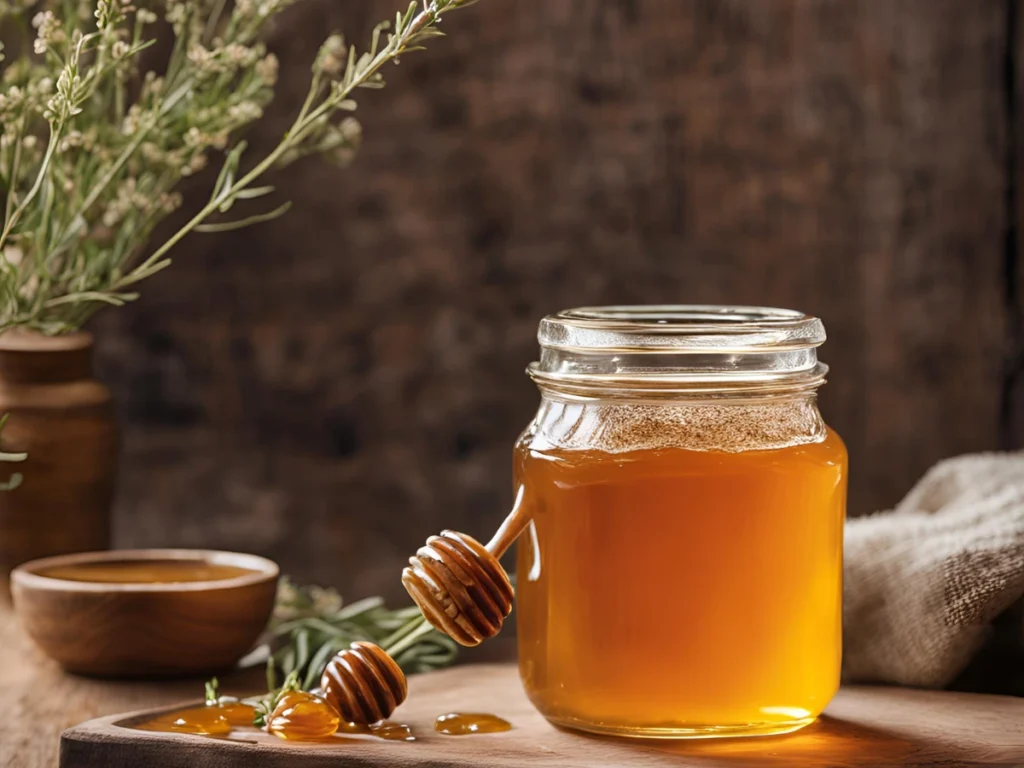
# Key Indicators of Quality to Look For
- Avoid goods that make vague or general claims because they might not contain real Manuka honey.
- Vital Signs of Quality to Look for For medicinal use with a UMF rating of 10+ or an MGO rating of 100+.”
- It’s darker and tastes more earthy.
- Origin and approval are marked.
# Common Misconceptions About Manuka Honey
It’s not a miracle fix, but it can help your health in general.
For everyday use, you only sometimes need higher UMF scores.
Also Read:- Summer Glow Up
10. How to choose the best Manuka honey
Look for a UMF or MGO rating. A higher rating indicates more potent antibacterial properties.
- The standard medicinal quality is UMF 10+ or MGO 100+.
- Up to UMF 15+ or MGO 250+: Very good for healing.
- UMF 20+ or MGO 400+: Better quality for healing.
11. Usage Tips Manuka Honey
- Manuka honey can lose some health benefits if heated above 40°C (104°F).
- Consume 1-2 teaspoons daily for general wellness or apply topically for skin benefits.
While Manuka honey is beneficial, it’s high in sugar and should be consumed in moderation, especially for individuals managing blood sugar levels.
12. How Much to Take and How Often
Suggested Daily Intake for Various Health Benefits
- General Health: 1 to 2 teaspoons a day for general health.
- Digestive Health: For better digestion, take one teaspoon before each meal.
- Boost Energy: One teaspoon before or after working out can give you extra energy.
Different Ways to Add Manuka Honey to Your Food Plan
- Put it on whole-grain bread.
- Add to warm milk or plant teas.
- Mix ginger and lemon for a drink that will help your defense system.
Possible Side Effects and Not Recommended
- When you overeat, you may take in more calories and have higher blood sugar levels.
- Because of the risk of botulism, it’s not safe for babies younger than 12 months.
- If you have diabetes or are allergic to bee products, talk to your doctor.
- To get the most out of Manuka honey to help you reach your health and fitness goals, you should know what nutrients it contains and how to use it properly.
Conclusion
Manuka honey is a superfood that can be used in many ways. It is also suitable for you in many ways. An all-natural cure is this one. It kills germs, helps cuts heal, and keeps your digestive system healthy. When you eat Manuka honey instead of regular sugar, it tastes great and is better for you.
Hi there! I’m content writer and blogger. With over two years of experience, I’ve shared my passion for writing across various platforms. I firmly believe in the transformative power of words and look forward to sharing this journey with you. Enjoy my work!



